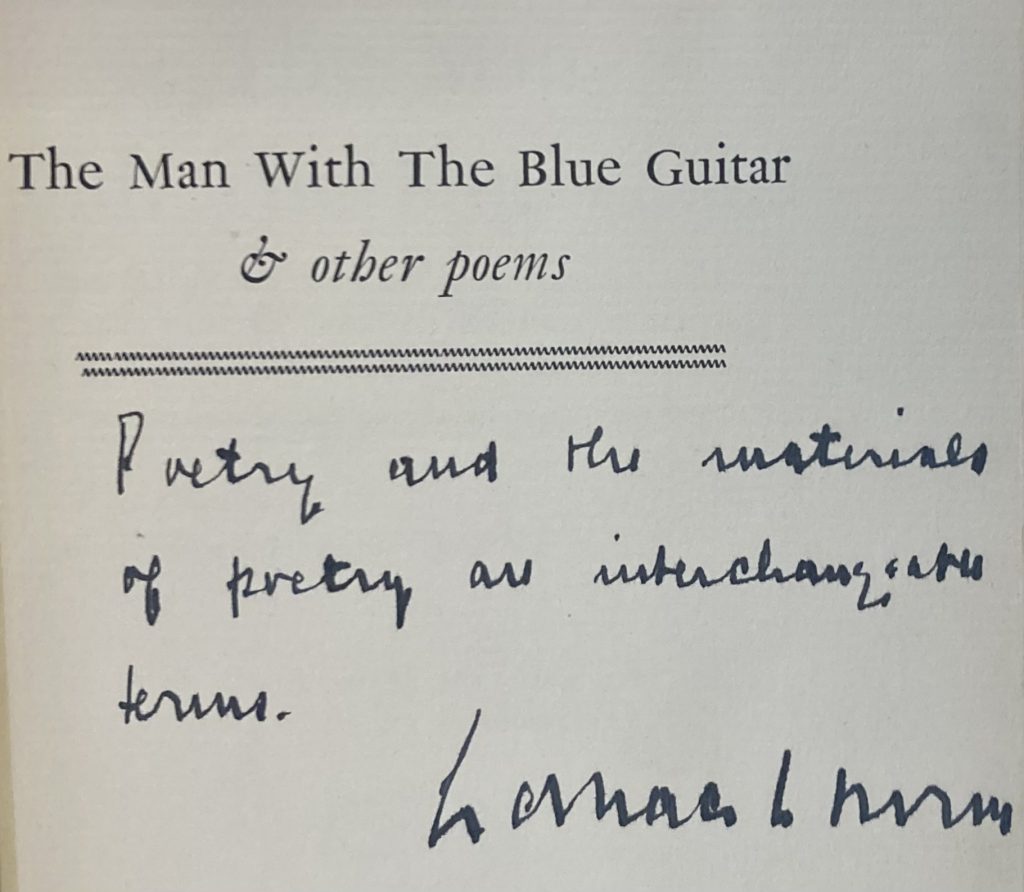 Poetry and the materials of poetry are interchangeable terms. Wallace Stevens
Poetry and the materials of poetry are interchangeable terms. Wallace Stevens
/ inscription in a copy of The Man with the Blue Guitar, 1937.
— — —
I collect only words : the books on the shelves are forests and mountains, pathways and tools and ore and tailings
— — —
What is a book but the record of the struggle of a story to tell itself ?
— Henry Wessells on the writings of Peter Straub
/ from the archives
— — —
Il représentait en ce siècle, et contre l’Histoire, l’héritier actuel de cette longue lignée de moralistes dont les oeuvres constituent peut-être ce qu’il y a de plus original dans les lettres françaises. Son humanisme têtu, étroit et pur, austère et sensuel, livrait un combat douloureux contre les événements massifs et difformes de ce temps. Mais, inversement, par l’opiniâtreté de ses refus, il réaffirmait, au coeur de notre époque, contre les machiavéliens, contre le veau d’or du réalisme, l’existence du fait moral.
— Jean Paul Sartre, on Camus after his death in 1960
— — —
“It feels extraordinary to be reviewing now, in 2025, a new book of ten poems by Charlotte — astounding not only that they have not been published before, but also that they have never been transcribed or photographed. [. . .]
“But they make their own argument for publication. It’s not just that they are good, but that it is amazing to read a young writer loudly, exultingly, exploring her ideas on the page. [. . .] perhaps Charlotte’s book has been rediscovered just when it is needed — as a reminder of what can happen when children are allowed to write headlong and with joy, spelling everything wrong, but getting everything that’s most important right.”
— Samantha Ellis, reviewing A Book of Ryhmes by Charlotte Brontë in the TLS
— — —
